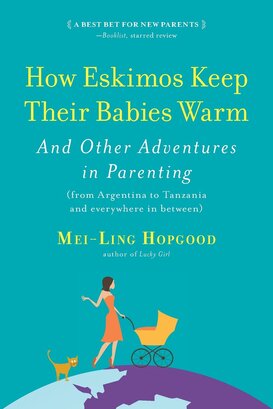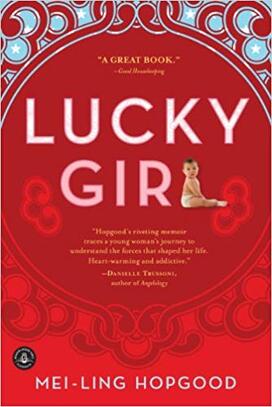|
A tour of global practices that will inspire American parents to expand their horizons (and geographical borders) and learn that there's more than one way to diaper a baby. Mei-Ling Hopgood, a first-time mom from suburban Michigan-now living in Buenos Aires-was shocked that Argentine parents allow their children to stay up until all hours of the night. Could there really be social and developmental advantages to this custom? Driven by a journalist's curiosity and a new mother's desperation for answers, Hopgood embarked on a journey to learn how other cultures approach the challenges all parents face: bedtimes, potty training, feeding, teaching, and more. Observing parents around the globe and interviewing anthropologists, educators, and child-care experts, she discovered a world of new ideas. The Chinese excel at potty training, teaching their wee ones as young as six months old. Kenyans wear their babies in colorful cloth slings-not only is it part of their cultural heritage, but strollers seem outright silly on Nairobi's chaotic sidewalks. And the French are experts at turning their babies into healthy, adventurous eaters. Hopgood tested her discoveries on her spirited toddler, Sofia, with some enlightening results. This intimate and surprising look at the ways other cultures raise children offers parents the option of experimenting with tried and true methods from around the world and shows that there are many ways to be a good parent.
|
|
In 1974, a baby girl from Taiwan was brought to the United States, newly adopted by a loving couple in Michigan. Mei-Ling Hopgood had an all-American upbringing, never really identifying with her Asian roots or harboring a desire to uncover her ancestry. She believed herself lucky to have escaped a life that was surely one of poverty and misery, to grow up in comfort with her doting parents and brothers.
Then, when she was in her twenties, her birth family came calling. Rather than the rural peasants she always pictured, they are a boisterous, loving, bossy, complicated middle-class family who hound her daily—by phone, fax, and letter, in a language she doesn’t understand—until she returns to Taiwan to meet them. As her biological sisters and parents pull her into their lives, claiming her as one of their own, the devastating secrets that still haunt this family begin to emerge. Spanning cultures and continents, Lucky Girl brings home a tale of joy and regret, hilarity, deep sadness, and great discovery as the author untangles the unlikely strands that formed her destiny. “Enchanting . . . Hopgood’s story entices not because it’s joyful but because she is honest, analytical and articulate concerning her ambivalence about and eventual acceptance of both her families and herself.” --The Courier-Journal (Louisville, Kentucky) |


